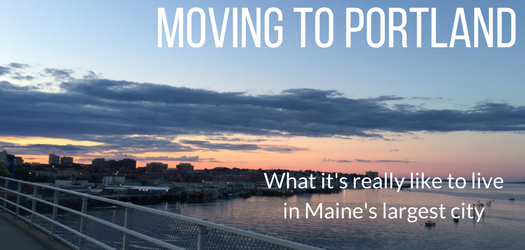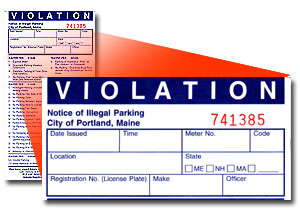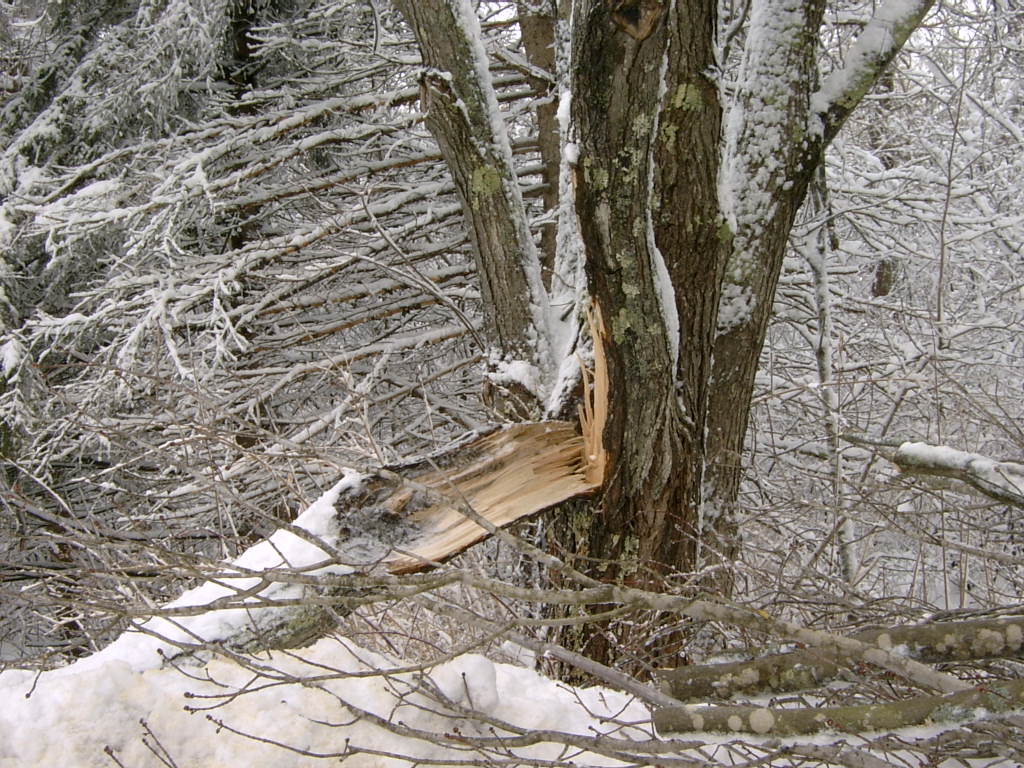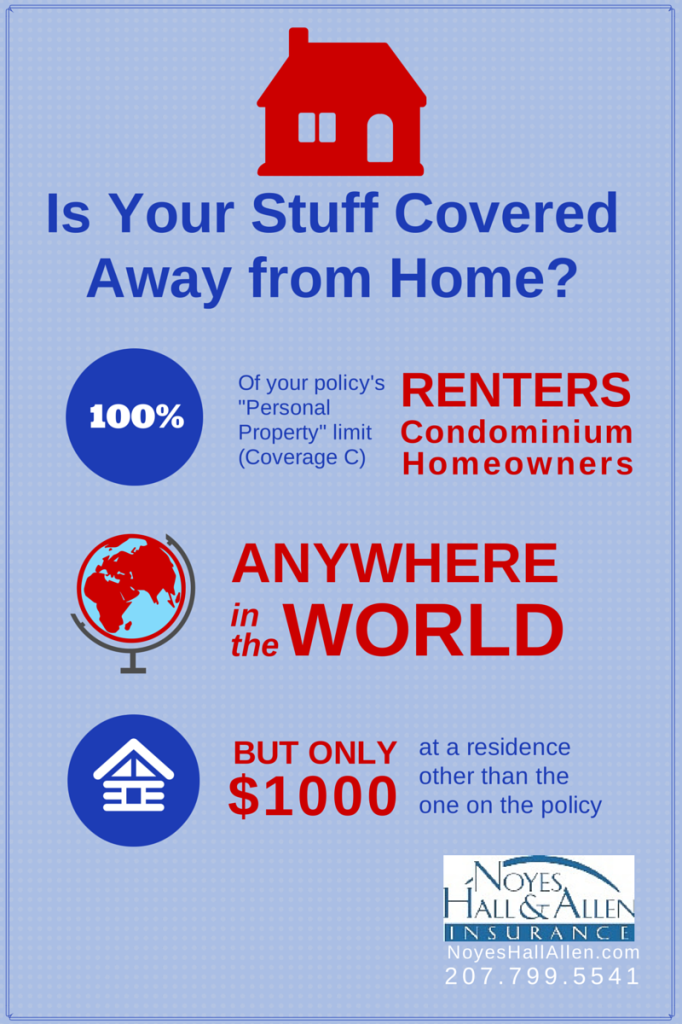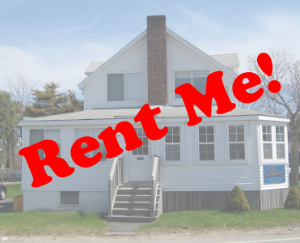Insurance is a $1 trillion business in the U.S. The industry employs about 2.5 million Americans, according to the Insurance Information Institute. Life/health (L/H) insurers collect about $650B and property/casualty (P/C) insurers about $500B each year.
Noyes Hall & Allen specializes in property/casualty insurance. Before talking about how property/casualty agents are paid, let’s take a brief look at the P/C business.
Maine Property/Casualty Insurance Overview
P/C insurers provide auto, home and business insurance. There are 3 top distribution models for P/C 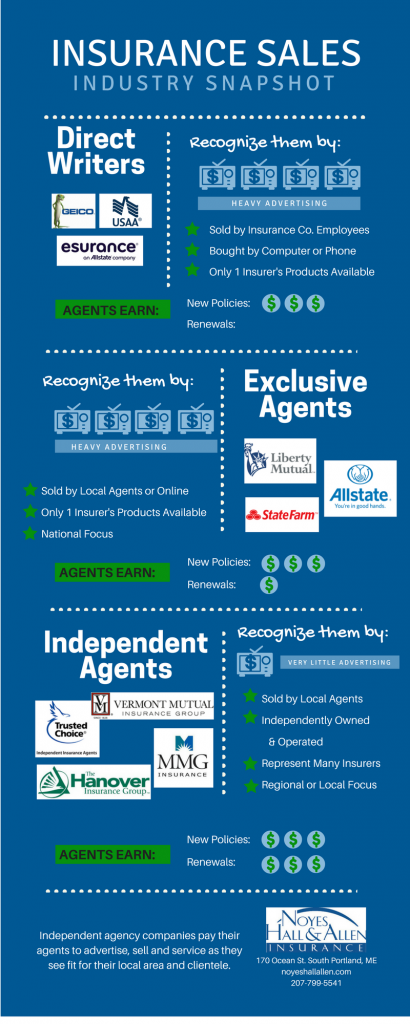 insurance.
insurance.
- Direct writers rely on advertising to generate the majority of their business. When you call or respond to an advertising piece, you’re speaking with a company employee. They only offer products from one company. GEICO, USAA and esurance are direct writers. While they don’t pay agents to generate business, they spend a LOT of money on advertising. GEICO alone spends over $1B per year.
- Exclusive agents (sometimes called “captive agents”) also sell insurance only from one company. Unlike direct writers, they have local agents who sell and service their products. These companies also advertise a LOT to drive business to their retail agents. Allstate, State Farm and Liberty Mutual use the exclusive agent model.
- Independent agents (sometimes called IAs or Trusted Choice agents) are locally owned and operated. Each contracts with 5 to 15 insurers, thus offering their clients a choice of insurance companies. IAs can access an international network of brokers for unusual insurance needs. Insurers that contract with IAs advertise much less than other insurance companies. They are less likely to be household names. Many IA insurers specialize on one region or type of customer. Popular IA insurers in Maine include: Concord Group; Hanover Insurance; MMG Insurance and Vermont Mutual.
- Hybrid companies (ok, this makes 4 models, but not really). These insurers will write insurance using one or more different channels. These are usually large national insurers. Examples: Hartford; Liberty Mutual; Travelers; and Progressive.
How Maine P/C Insurance Agents Make Money
Both exclusive and IA insurance companies pay agents a percentage of the premium. Commission varies by policy type and whether the policy is new or renewal. Usually, commission is between 10 and 20 percent.
Exclusive agents often make a higher percentage commission on new business than renewals. Some exclusive companies even stop paying agents after several years. This incents the exclusive agent to focus on writing new policies.
Independent agents often make the same commission on both new and renewal policies. This allows the agent to provide consistent customer service year after year. If you’re an existing client of an independent agent, you’re even more valuable than a new one. It takes an independent agent 3-5 years to recoup the cost of insuring a new customer.
Who Pays an Insurance Agent’s Commission?
The insurance company pays the agent’s commission out of the premium they collect. There is no specific surcharge on the premium that goes to the agent. Of course, the customer pays the agent’s commission – just not by a separate line item. Insurance premiums do not rise or fall with the agent’s commission percentage.
Can You Save on Insurance if You “Cut Out the Middleman”?
No one sales channel is always the lowest cost. Claim costs and insurance company expenses all impact premiums. Some direct writers would have you believe that you save money by bypassing an agent. In reality, you might pay MORE without an agent to advocate for you. Of course, you could pay less, too.
Our Agents Speak English – And Insurance. If you don’t know the system, you can leave money on the table. We know to ask about certain discounts. Is your child on the honor roll or away at college without a car? Your local agent may know these things, or you might ask when you call in to do something else. If your agent is independent of the insurance company, they’re more likely to act on your behalf.
If you have a question about Maine home, auto, boat, motorcycle or business insurance, contact a Noyes Hall & Allen agent at 207-799-5541. We’re independent and committed to you.


